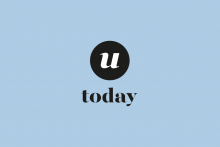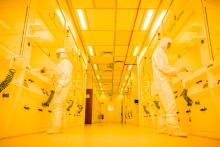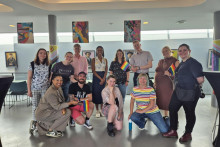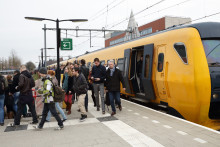Such is the opinion of the committee of Market Stimuli for Medical Education chaired by R. Linschoten, a member of the People's Party for Freedom and Democracy (VVD). The committee has high expectations for the new medical professions that the UT can create in cooperation with Het Roessingh, Medical Spectrum Twente (MST), Saxion and RCO. The element of task reduction and substitution (which has been known for years in the US) runs through the report. The universities of Twente and Eindhoven, which have revealed their ambitions together with Tilburg and some of the top clinical hospitals in the region, could provide a yearly intake of 100 students.
Last week the advice was offered to minister Hermans. Solving the capacity problem is expected to be an issue in the new coalition agreement.
Linschoten claims that the shortage of doctors in the near future can be solved by expanding the capacity of the eight existing medical faculties (200 extra positions), temporarily importing MDs (100), creating new courses of study in Twente and Eindhoven (100) and by the new HBO-plus professions (100). In the meantime the UT has adapted its request for a purely medical program, within the traditional framework, to the advice of Linschoten.
The committee claims that in academic education there should be a place for 'important practical clinical experience'. This refers to relatively short programs on the cutting edge of technology, biotechnology, ICT, medicine and healthcare'. Social sciences such as sociology and psychology also deserve a place in the curriculum. The resulting independent professionals (including HBO-plus) will be trained in a significantly shorter time (compared to the eight to ten years for studying medicine, including specialization) and will more quickly tackle the capacity problems. In a carefully specified framework, they will be allowed to act independently, hold office hours, make a diagnosis, redirect patients and prescribe medicine. They will become a part of the primary health care, according to the committee. Since the terms 'differentiation', 'specialization' and 'using the Bachelor/Master-structure' have been used interchangeably, the report could be talking about Master's programs but the committee is unclear on this point. According to Linschoten, examples of new professional programs that could arise in Twente andEindhoven include biomechanical medical science, endoscopy, radiotherapy and diagnostics, medical-oncological specialist, oncological engineer, intensive technical medical science, audiology, rehabilitation science and anesthesiology. The committee claims that the suggested measures are temporary. It will prevent the initiation of unwanted processes (such as a ninth faculty) and offers existing institutes and new providers (such as the UT) the opportunity to develop 'promising initiatives' for many years to come. However, the committee Linschoten is not enthusiastic about the proposed cooperation between the UT and M³nster, claiming it has not been tested for durability. It is currently unknown whether M³nster will play a role in the development of aforementioned technological-medical differentiations.







